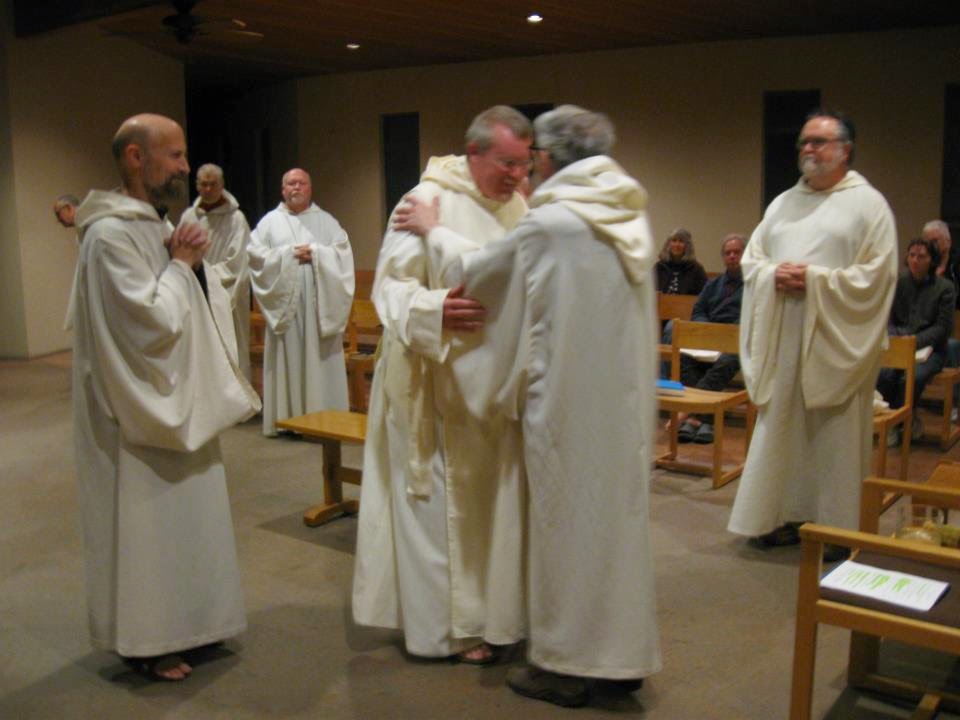.jfif)
The most important things that have been underscored for me during these weeks have been the foundational aspects of c 603 vocations: these solitary hermit vocations are public and ecclesial. I have said this again and again through the past almost two decades, and the importance of these two elements in forming the candidate's sensibilities concerning eremitical life generally and consecrated c 603 life particularly cannot be overstated. Related to this is the candidate's understanding that public or canonical means public rights and obligations the Church extends to the candidate which s/he embraces. S/he must approach profession, consecration, and life after these performatory "moments" and within the reality they create in a way that is both uniquely responsive to the Church's mission in the contemporary world and sensitive to and reflective of the ancient eremitical tradition s/he now represents. There are some questions and concerns that have been raised particularly during this time, and my sense is dioceses must definitely raise these with every candidate they consider for profession and/or consecration during the first couple of sessions they hold with the candidate.
For instance, it is important to ask directly what the person knows about Canon 603. How has its existence and its essential elements shaped his/her eremitical journey? (We need to ask about each of these elements individually in this regard.) What is its history (both remote and immediate) and why was it established? Does s/he understand, for instance, that it was not primarily established to deal with abuses in eremitical life, but rather because the Universal Church had finally come to esteem this vocational gift of God? Does s/he understand why and how this vocation is prophetic and a gift to the Church, and to every person making up this body --- particularly to the marginalized, the chronically ill and disabled, the poor and elderly? Is s/he ready to take on that role and to grow in it even if s/he must (perhaps) change some ingrained ideas about the eremitical life itself? Does s/he understand that ironically, the canon's constraints provide a realm of freedom the Church extends to him/her so that s/he may grow in communion with God for the sake of others, or does s/he see the canon as some kind of straightjacket used to hem in the hermit or a penal code mainly meant to correct errors? If the hermit sees the canon in the first light it can be a joy to him/her and his/her eremitical life; if it is seen in the second light, s/he may never be empowered to discover its depths and beauty with his/her own eremitical life. These questions are important for those discerning such vocations as well.Similarly, does the candidate have at least a glimpse of the canon's charism? Does s/he perceive and appreciate the way the vocation-as-canonical is a gift to the Church and serves in the proclamation of the Gospel? How does s/he relate to this gift quality? Does s/he understand the defining elements of the canon as doorways to worlds s/he is called to explore with and in God, or are they instead perceived as narrow gates to a single rigid meaning with little relevance to most people's lives? Does s/he approach the life under c 603 with the heart and mind of a beginner or as someone who believes it has nothing to teach him/her, nothing to surprise him/her with, and nothing to delight him/her day by day? These questions themselves lead to questions regarding the candidate's theological sophistication or lack thereof. It is important that there be real competence, not that the hermit needs to be a theologian, but that s/he is able to negotiate traditional sources of spirituality and eremitical life in light of contemporary voices and scholarship and the light of his/her own prayer as well.
A penultimate question (at least for tonight!) that must be asked as well is about the hermit candidate's use of media, social and otherwise. For instance, if the hermit candidate has a public-facing presence (blogs or vlogs), then these need to be checked out and discussed with the candidate. It is especially important to do this when there are several blogs that correspond to different periods of the candidate's life and relationship with the Church. Patterns of behavior and personal difficulty that might not be entirely evident otherwise can be perceived when these avenues are explored. A particularly crucial question that may sometimes go unasked is, "Why are you seeking to be professed under c 603?" In recent weeks, that particular question became particularly urgent and problematical for some who wrote me in light of so much blog and vlog material denouncing and reviling c 603, the motives, character, and fidelity to c 603 itself of c 603 hermits, or of the bishops who approve such vocations. After at least 15 years of this kind of material, as well as an obstinate insistence that one is already a consecrated Catholic hermit, it becomes a compelling question those discerning the vocation standing before them, must know to ask!! In fact, it is this question that calls for all of the other ones I have mentioned here.My thanks to those who have written this month and last with questions and concerns. You have helped me in my own vocation (especially my vocation within a vocation) and contributed to the ongoing project I am working on regarding the discernment and formation of c 603 vocations. Individual situations with c 603 candidates come and go, but the ability to help the Church learn from them is important and you have been especially helpful in that. It truly has been a fruitful if challenging number of weeks! Again, thank you.
.jfif)





















.jpg)




.jpg)

.jpg)









































